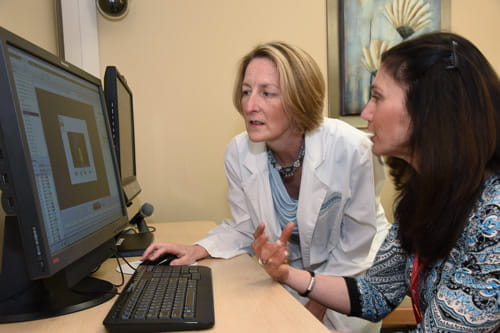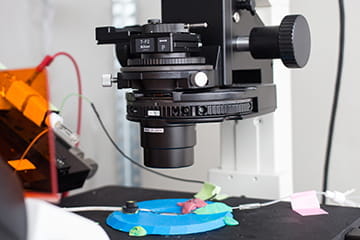Recognized as a national leader in traumatic brain injury-related care and research, IU School of Medicine faculty investigators facilitate innovative projects and research focused in the areas of the delivery, demonstration and evaluation of medical, rehabilitation, vocational, and other services designed to meet the needs of individuals who suffer from traumatic brain injury.
IU School of Medicine takes a multidisciplinary approach to TBI research with investigators representing many different academic departments, including Physical Medicine and Rehabilitation, Psychiatry, Neurology, Surgery and Anesthesia as well as the Indiana Clinical and Translational Sciences Institute (CTSI), located on the IU School of Medicine – Indianapolis campus.
Investigators receive funding for their research through a multitude of governmental agencies including the National Institutes of Health (NIH), the U.S. Department of Defense, the National Collegiate Athletic Association (NCAA), the U.S. Department of Veterans Affairs and the Indiana State Department of Health as well as other non-profit organizations, foundations and industry leaders.



